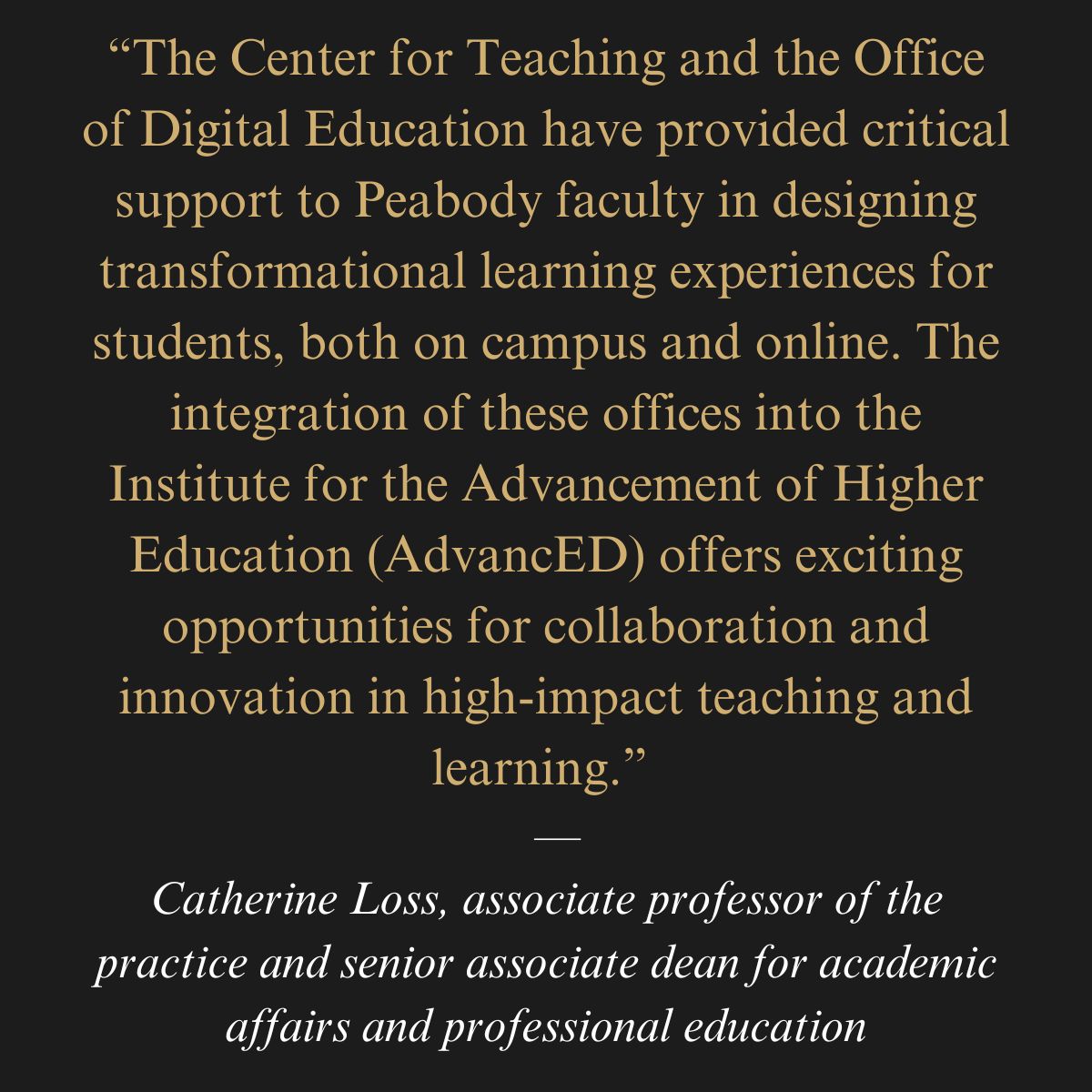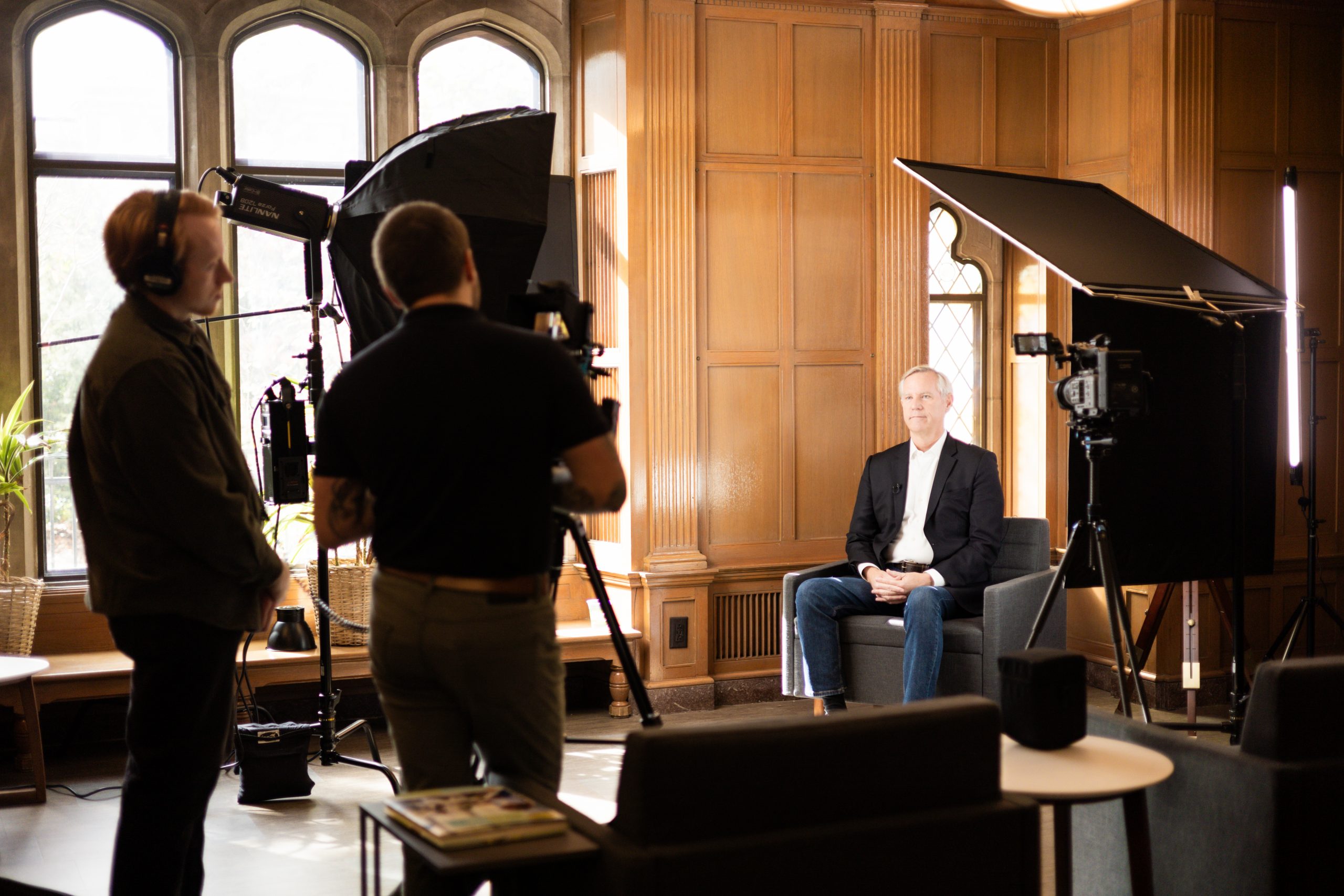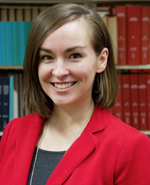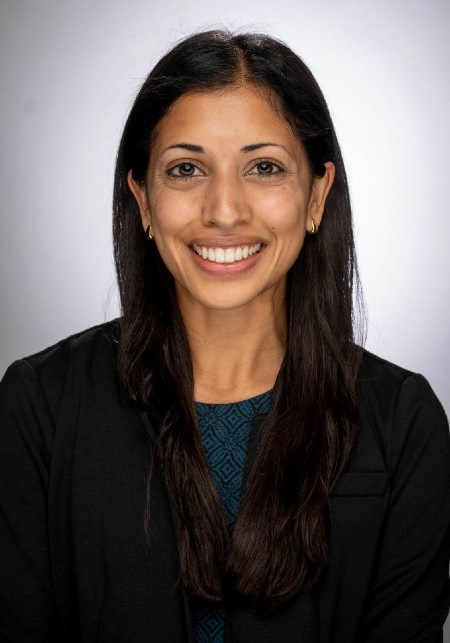Vanderbilt University has turned some of its celebrated innovation and high-powered attention to collaboration onto the rapidly changing and ever-expanding processes of teaching and learning.
“The old classroom model of ‘one of me, 30 of you’ is increasingly less effective with students who want to chart their own path through the university,” said David A. Owens, professor of the practice of organizational studies and Evans Family Executive Director of the Wond’ry.
Long-time faculty like Owens and new faculty alike can turn to Vanderbilt’s Institute for the Advancement of Higher Education, or AdvancED, for training and support as they explore new ways to connect with students, whether on campus or online.
“AdvancED can help us think about how to engage these really smart students in a way where you aren’t telling them what to do but to create opportunities where they can teach themselves and each other,” Owens said.
“Vanderbilt stands out among leading research universities for its highest-caliber faculty and the academic and creative talent of its students,” Provost C. Cybele Raver said. “AdvancED is an exciting opportunity to drive greater collaboration and innovation in university teaching and learning—not just for Vanderbilt, but as a transformative leader in higher education more broadly.”
Drawing on the talent, resources and expertise of the Center for Teaching and Office of Digital Education, AdvancED is a collaborative, multi-disciplinary team that provides support in three areas:
- Teaching and learning support for Vanderbilt’s faculty, graduate students and postdocs
- Digital and lifelong learning through hybrid and online degree programs and nondegree certifications
- Educational technology, including the university’s Brightspace learning management system and integrated tools

The new institute is organized into two units. The Office of Education Design and Development, which operates from the former CFT offices at 1114 19th Ave. S., carries on many of the consulting and training services offered by the CFT while expanding its research portfolio in pedagogical practice. The Office of Learning Innovation, which is based in Baker Building Suite 805, is focused on education technology and continuing education, including Vanderbilt Online and its degree programs, certificates and nondegree courses.
AdvancED, which had its soft launch during the Spring 2023 semester, builds on the skills and services of these two highly successful teams, said Tracey George, vice provost for faculty affairs and professional education, who oversaw the merger. AdvancED opens the door to new forms of innovation and collaboration for faculty who previously engaged with both or either team while raising its profile among Vanderbilt’s faculty at large and across higher education.
“We want to signal to our campus community and higher education at large that a great, relevant university in the 21st century is not only focused on cutting-edge research and competitive recruiting, but also innovation in teaching and learning experiences,” George said. “‘World-class’ is a moving target, but Vanderbilt has a right to win in this space by ensuring our teaching and learning efforts are unified and moving forward together. AdvancED will take us there.”
The Center for Teaching was founded in 1986 to support faculty in the College of Arts and Science, eventually expanding its mandate to additional colleges in 1997. The CFT has been vital to faculty success, from onboarding new faculty to pre-tenure review coaching and customized support for unique or difficult classroom dynamics.
Their nimble programming was crucial in the early days of the COVID-19 pandemic as the university scrambled to move classes online. “Their remote teaching course was a lifesaver,” said Phillis Sheppard, E. Rhodes and Leona B. Carpenter Chair of Religion, Psychology and Culture.
Many Vanderbilt faculty members have received career-shaping support from the CFT, and they advocate for AdvancED’s new mission.

“As junior faculty, we learn a lot about our content area but not so much about how to teach our content area,” Owens said. “The CFT helped me learn how to connect with my students and hold their attention—and has continued to do so as classroom dynamics have evolved during my career.”
Now part of AdvancED’s Office of Education Design and Development, the team continues to offer one-on-one consultations, workshops and a wide range of training resources for new and seasoned professors alike on topics ranging from giving students feedback to teaching for community impact. Led by Jennifer Anderson, a Vanderbilt alumna who joins AdvancED from the University of Louisville’s Delphi Center for Teaching and Learning, the team is working to expand its services to a broader audience.

“I’m honored to return to Vanderbilt to collaborate with this incredible team of faculty and staff,” said Anderson, whose appointment officially begins in February 2024. “With AdvancED, the provost has given us a clear mandate and the resources to leverage all our collaborative potential to lead Vanderbilt forward.”
Anderson was selected to lead the education design and development team as part of a national search conducted by Isaacson, Miller and directed by a faculty and staff search committee of Bonnie Dow, Paul Laibinis, Mallika Vinekar and Catherine Loss.
The Office of Learning Innovation continues the work started in 2022, when it was tasked with revolutionizing Vanderbilt’s academic offerings in hybrid and online spaces.

“While our initial goal was to expand Vanderbilt’s reach and impact globally, our faculty partnerships quickly opened up a number of additional opportunities in nondegree programs, technological innovation and student experience that will help lead Vanderbilt into the future,” said Vinkear, director of the OLI.
Chris Serkin, Elisabeth H. & Granville S. Ridley Jr. Professor in Law, calls this partnership invaluable.
“When we launched the online Master in Legal Studies, we faced a steep learning curve,” Serkin said. “Not only did we have to learn how to develop and deliver a new online learning curriculum from the ground up, we had to manage recruiting students and developing the infrastructure of student support, allowing us to launch a year sooner than planned.”
Degree programs are only part of the opportunity, however, as AdvancED is managing a rapid expansion in nondegree and certificate offerings.
The team has collaborated closely with the School of Engineering’s Jules White, professor of computer science, to drive generative AI efforts across the university, including the launch a number of nondegree ChatGPT courses on Coursera. The popular series has seen more than a quarter million students enrolled and is among the most viewed content on the platform. AdvancED is dedicated to helping any interested Vanderbilt faculty develop their content for an expanded audience, as they did with White.
Inspired by Vanderbilt’s principle of radical collaboration, AdvancED provides the university with a powerful opportunity to leverage the deep trust and many successes of these separate units into a powerful new partnership. Melissa Rose, senior associate dean for academic affairs, who collaborated with AdvancED staff to design online summer courses for Blair School of Music, hopes the university “can continue to expand our horizons and gain even more support for interdisciplinary co-teaching.”
The Institute for the Advancement of Higher Education is now collaborating with faculty across the university and students around the world. To learn more or to collaborate with AdvancED, visit their new website at vanderbilt.edu/advanced-institute.